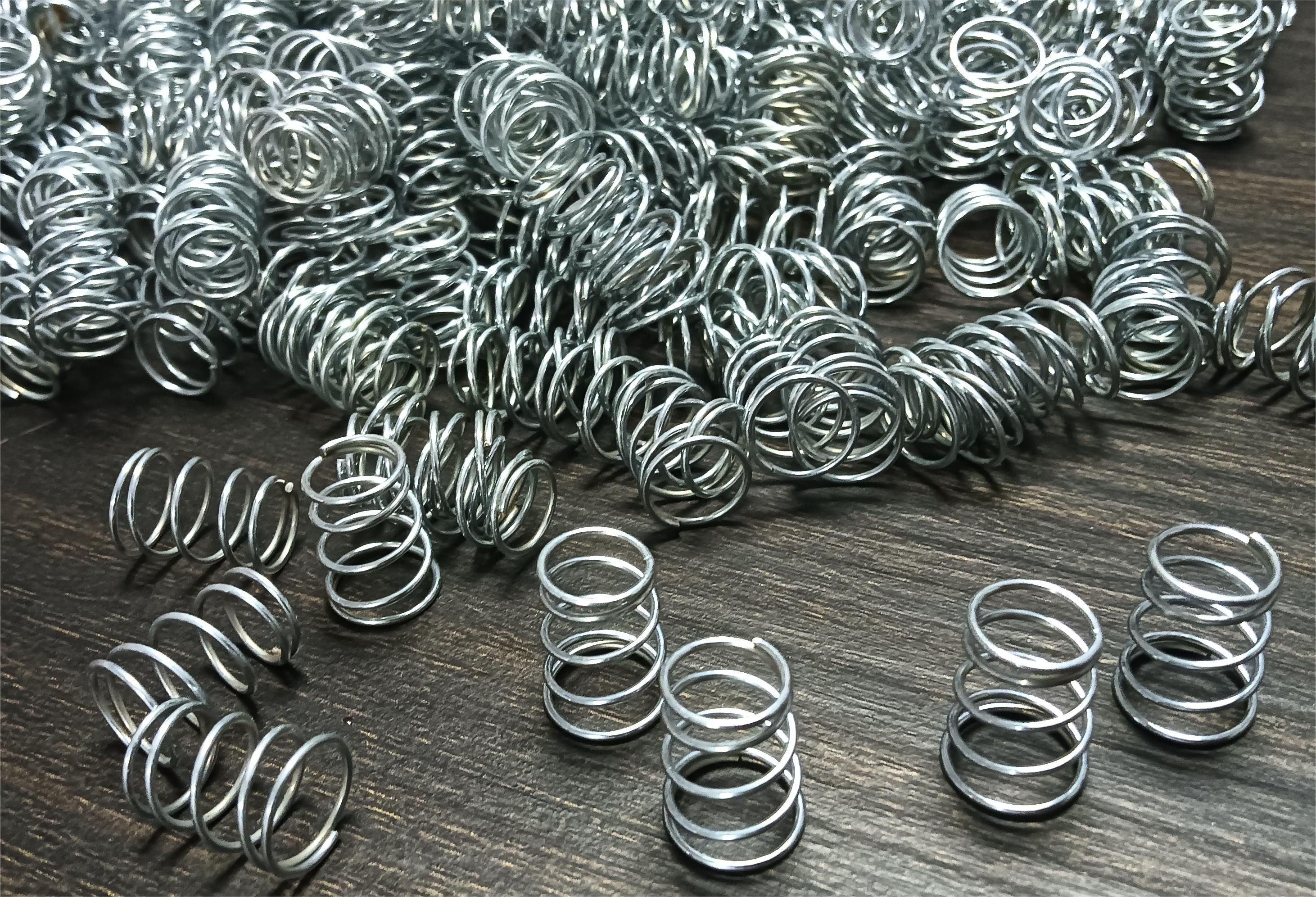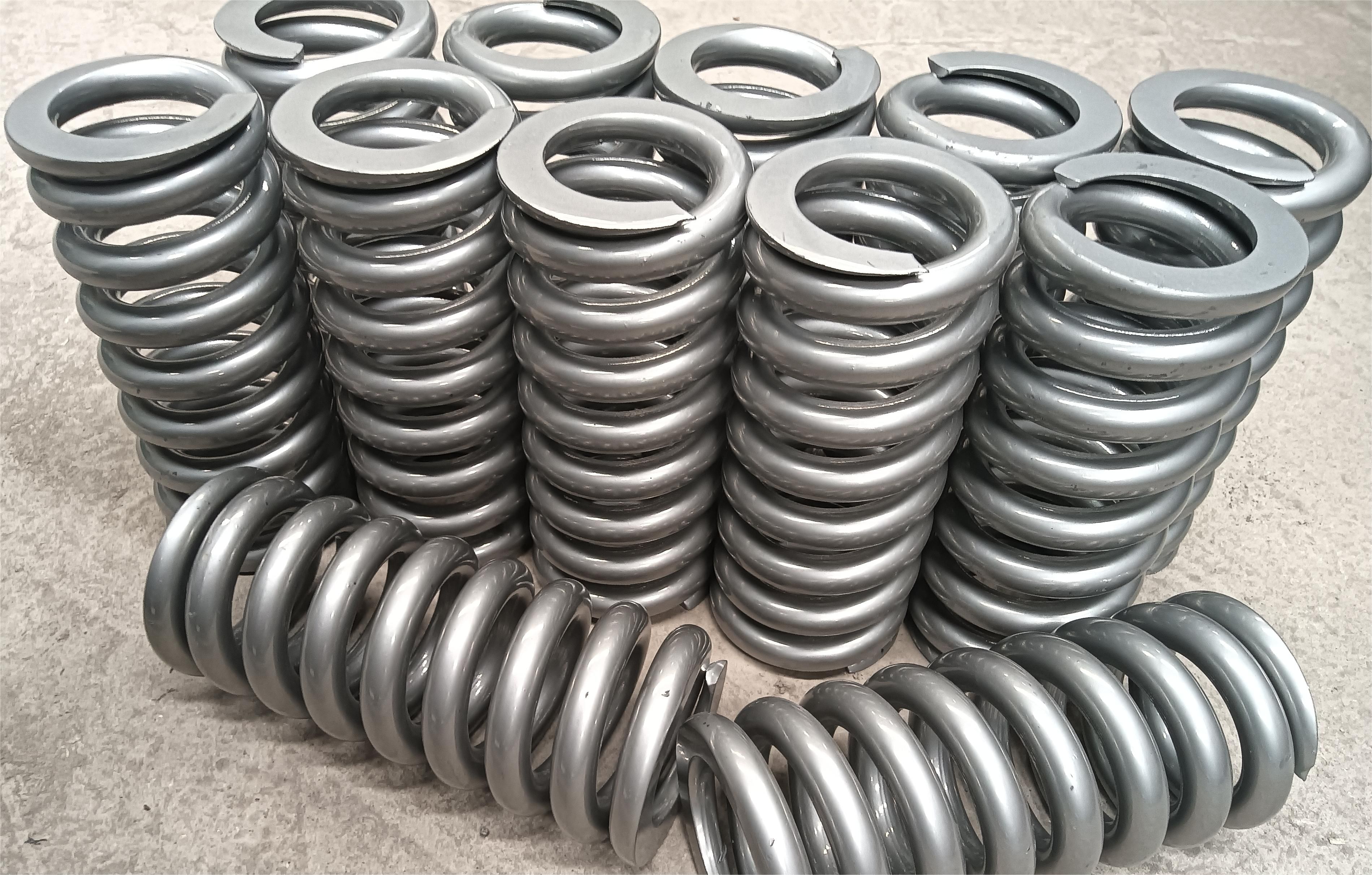Material Properties to Know Before Choosing
Before delving into specific materials, it's essential to understand the key material properties that matter when selecting a material for coil compression springs. These properties include:
1. Elastic Modulus: This is a measure of a material's stiffness and its ability to return to its original shape after deformation. It's a critical property for ensuring that the spring can store and release energy efficiently.
2. Yield Strength: The maximum stress a material can withstand without permanent deformation. It's vital to choose a material with a high yield strength to prevent premature failure.
3. Fatigue Resistance: Coil compression springs undergo repeated cycles of compression and expansion. Material fatigue resistance is crucial for a long spring life.
4. Corrosion Resistance: Depending on the application environment, it may be necessary to select a material that can resist corrosion and maintain its integrity.
5. Cost: The material cost can significantly impact the overall cost of manufacturing the springs.

Common Materials for Compression Springs
· Carbon Steel: Carbon steel, is one of the most popular materials for coil compression springs. It offers excellent tensile strength and can withstand a wide range of operating temperatures, especially for the High Carbon Steel wire. The carbon steel wire is also relatively affordable, however, it is not highly corrosion-resistant and may require a protective coating if used in harsh environments. The commonly carbon steel wire include 45#, 50#, 60#, 70#, 72A/B, 82A/B, T9A and so on.
· Stainless Steel: Stainless steel springs are known for their corrosion resistance. They are a great choice for applications in humid or corrosive environments. Stainless steel springs can maintain their properties at both high and low temperatures, making them versatile for various industries. However, they tend to be more expensive than high carbon steel springs. The commonly stainless steel wire include SUS301, SUS302, SUS304, SUS316, SUS410, SUS630, SUS631 and so on.
· Alloy Steel: Alloy steel springs combine the strength of high carbon steel with improved resistance to corrosion. These springs are often heat-treated to enhance their mechanical properties. Alloy steel springs are commonly used in applications that require both strength and corrosion resistance, such as automotive suspensions and industrial equipment. The commonly alloy steel wire include 65Mn, 55CrSi, 55Si2Mn, 60Si2Mn, 55CrMn, 60CrMn, 50CrV, 60CrMn, 60Si2Cr and so on.
· Inconel Materials: Inconel is a high-performance nickel-chromium alloy known for its excellent resistance to high temperatures and aggressive chemicals. Springs made from Inconel are suitable for extreme environments, such as aerospace and oil and gas applications. However, they are among the most expensive options. The commonly Inconel wire include Inconel 600, Inconel 625, Inconel 718, Inconel X750 and so on.
· Non-Ferrous Alloys: Non-ferrous alloys like phosphor bronze and beryllium copper are excellent choices for applications where electrical conductivity is important. These materials are often used in electrical connectors and switches. They offer good corrosion resistance and durability. The commonly beryllium copper wire include QBe1.7, QBe 1.9, QBe 2.0, QBe 2.5a nd so on.
How to Select the Right Material?
When choosing the right material for your coil compression springs, it's crucial to consider the following factors:
· Application Environment: Determine the conditions in which the spring will operate, including temperature, humidity, and exposure to corrosive substances.
· Required Strength: Evaluate the load-bearing capacity and expected cycle life of the spring. Different materials have varying tensile strengths and fatigue resistance.
· Cost: Consider your budget constraints and choose a material that balances performance with affordability.
· Regulatory Requirements: Certain industries have specific material requirements to meet safety and quality standards. Ensure your chosen material complies with these standards.
· Customization: Depending on your application, you may need to customize the spring design to meet specific requirements. Different materials can be tailored to these needs more effectively.

Ultimately, the choice of material for your coil compression springs should be based on a careful assessment of your project's unique demands. Working closely with Kathysia Industrial can help ensure that you select the right material for your application, leading to optimal performance, longevity, and cost-effectiveness.
If you need any compression springs, please contact Kathysia Industiral without hesitation, our engineer will help you to choose the right material and give you a professional design, your coil compression springs will function reliably, enhancing the overall performance of your equipment or product.
